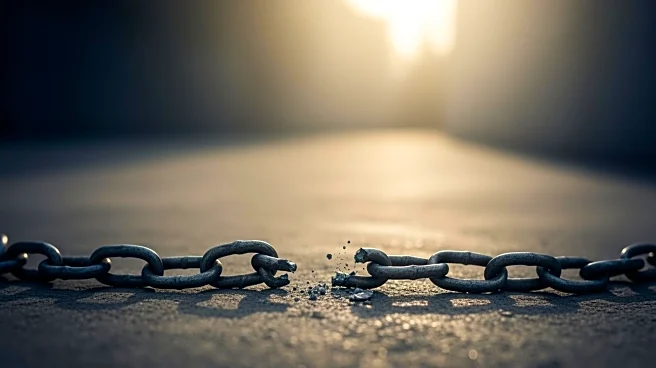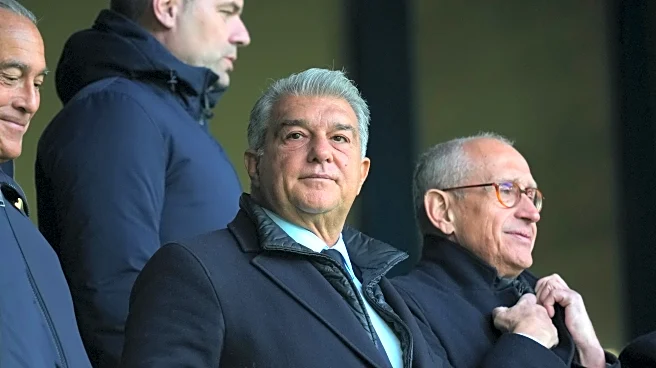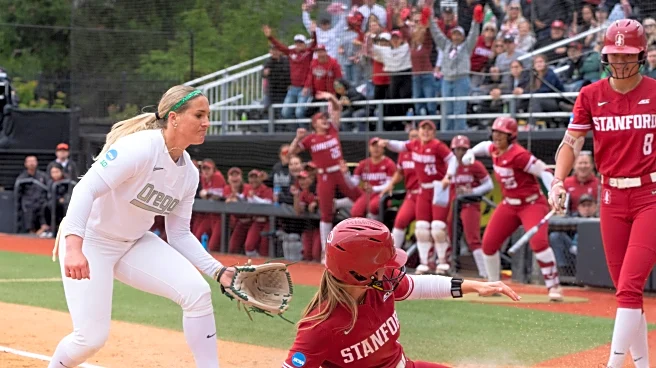What's Happening?
Secretary of State Marco Rubio has issued a warning that any move by Israel to annex the West Bank could jeopardize peace efforts in the Gaza Strip. This statement follows a symbolic vote by right-wing
members of the Israeli Knesset to extend Israeli law to the Palestinian Authority-run territory. Rubio emphasized that such actions could deter international involvement in the peace process. Additionally, Rubio stated that the United States will not collaborate with the United Nations Relief and Works Agency for Palestine Refugees (UNRWA) in rebuilding Gaza, citing allegations of the agency's ties to Hamas. Despite these allegations, the International Court of Justice has mandated that Israel must allow UNRWA to provide humanitarian aid in Gaza.
Why It's Important?
The potential annexation of the West Bank by Israel poses significant risks to the fragile peace process in the region. Such a move could alienate key international stakeholders and disrupt ongoing efforts to stabilize Gaza. The U.S. stance against working with UNRWA highlights the complexities of international aid and governance in conflict zones, particularly when organizations are accused of affiliations with terrorist groups. The outcome of these developments could impact regional stability, U.S. foreign policy, and the humanitarian situation in Gaza, affecting millions of Palestinians who rely on international aid.
What's Next?
The international community, including the U.S., will likely continue to monitor the situation closely, with diplomatic efforts aimed at preventing further escalation. The U.S. may seek alternative partners for rebuilding efforts in Gaza, while Israel's actions regarding the West Bank will be scrutinized for compliance with international law and peace agreements. The role of UNRWA and its future operations in Gaza will remain a contentious issue, potentially leading to further legal and diplomatic challenges.










